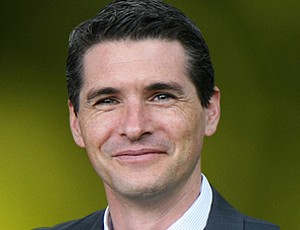OPINION
To reflect the views of the community, we invite a guest to share their thoughts on dance in Aotearoa New Zealand. Geordan Wilcox danced with the Royal New Zealand Ballet from 1994 to 2017. He is now head of dance at Saint Kentigern College in Auckland.
SUSTAINABLE INCOMES FOR NEW ZEALAND DANCERS
BY GEORDAN WILCOX
I’ve had the privilege of a career as a professional dancer in New Zealand, performing both as a freelancer and, for over a decade, as a dancer with the Royal New Zealand Ballet. This was not always without its challenges; at the same time, it has been enormously rewarding and fulfilling.
Now as a dance educator, I feel privileged once again to pass the joy of dancing to my students. This piece is based on my personal opinion as a former dancer and a teacher.
Dance education has a place in the curriculum that was unthinkable just over a decade ago. And what a remarkable addition to the curriculum it is. I’ve seen first-hand how transformative dance can be: how dance contributes to young people’s physical and emotional development, how it develops cognitive processes, and how it unlocks creative expression.
Along with the inclusion of dance in the school curriculum—and more students benefiting from dance instruction—there are challenges. In particular for those who wish to make a full-time career in dance, especially in New Zealand.
The Careers NZ website states: “The chances of getting a job as a dancer are poor due to strong competition for a limited number of vacancies.”
DANCE ENRICHES SOCIETY/CULTURE AND CONTRIBUTES TO OUR ECONOMY IN MANY WAYS, YET DANCERS ARE STILL NOT PAID WELL IN RELATION TO THE INCREASING COST OF LIVING AND STILL, WITHIN SOME AREAS OF SOCIETY, DANCE IS CONSIDERED AS JUST A HOBBY AND NOT A REAL JOB.
New Zealand has some of the best dance training institutions and teachers in the world. But graduates must compete for jobs in one of only a few dance companies in the country. While some graduates will excel and find work, others will struggle. Many will move overseas to dance, or become dance teachers. Within New Zealand, dancers are confronted with financial insecurity where salaries have not kept up with pay in other industries, or, for that matter, with the pay scale for dancers in other countries. I know, for example, of New Zealand dancers who, having found full-time employment in dance, drive for Uber to help keep up with the cost of living.
We produce exceptional dancers. Now, more than ever, we need to ask ourselves how much we value our country’s professional dancers, and how we should address the sustainability of dance careers in New Zealand. My own career tells me that dance takes all the resources at your command and then some. It allows no time for secondary employment. It’s a way of life. How to make that more sustainable for dancers of the future? We could have discussions about the myriad of problems dancers face. But better pay for dancers would be a good place to start.

